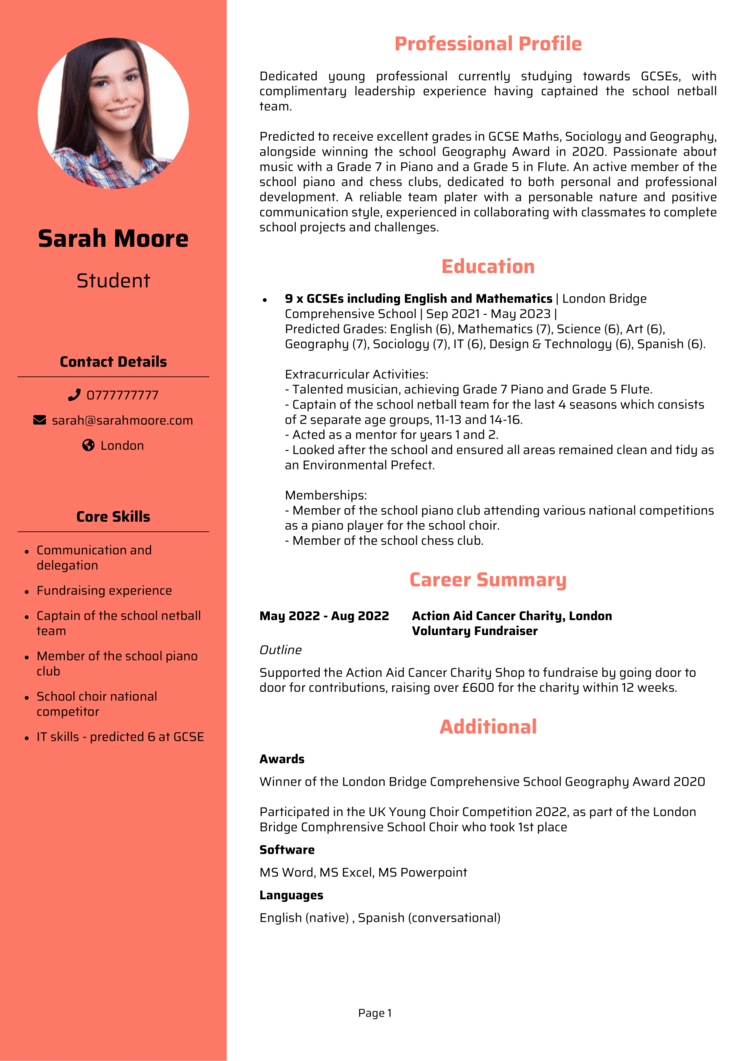Starting your job search when you’re fresh out of education or have simply never had a formal job can feel like a monumental task. You might find yourself staring at a blank document, wondering how on earth you’re supposed to fill a CV when the ‘work experience’ section is empty. It’s a common dilemma, and trust us, you’re not alone in facing it. The good news is that having no traditional work experience doesn’t mean you have nothing to offer.
Every individual possesses a unique set of skills, experiences, and potential that can be effectively showcased, even if it hasn’t been gained in a paid employment setting. The key is to shift your perspective and understand how to highlight your strengths, achievements, and transferable skills in a way that captures a recruiter’s attention. This article will guide you through crafting a compelling CV that proves you are a valuable candidate, ready to contribute from day one.
Beyond the Resume: Highlighting Your Unique Value Without Traditional Experience
When you’re building a CV template for someone with no work experience, the focus naturally shifts from employment history to other valuable aspects of your life. Instead of seeing an empty space, view it as an opportunity to showcase your academic achievements, personal projects, volunteer work, and any extracurricular activities that demonstrate your capabilities and commitment. Recruiters are looking for potential, and your CV needs to clearly articulate yours.
Your education section becomes incredibly important. Go beyond just listing your degree or school. Include relevant coursework, major projects, group assignments, or even a strong GPA if it’s impressive. Think about any presentations you gave, research you conducted, or specific skills you developed during your studies, like data analysis, public speaking, or software proficiency. These are direct indicators of your abilities.
Furthermore, consider any volunteer roles, internships, or even significant contributions to school clubs or community initiatives. Did you organize an event, lead a team, manage a budget, or help a local charity? These experiences, though unpaid, often involve a wealth of transferable skills such as leadership, teamwork, problem-solving, and communication. Describe your responsibilities and, more importantly, your achievements in these roles.

Finally, don’t underestimate the power of personal projects or hobbies. If you’re a budding programmer, showcase your coding projects. If you’re a creative, link to your portfolio. Have you built a blog, managed a social media page, or taught yourself a new language? These all demonstrate initiative, dedication, and relevant skills. This section is where you truly illustrate your passion and drive.
Essential Sections for Your Experience-Free CV
Your CV template for someone with no work experience should thoughtfully include the following key sections:
- Contact Information: Make it easy for employers to reach you.
- Personal Statement/Objective: A concise paragraph outlining your career goals, enthusiasm for the role, and key skills. Tailor this for every application.
- Education: Detail your academic journey, including degrees, courses, and notable achievements.
- Skills: A dedicated section for both hard skills (e.g., software proficiency, languages) and soft skills (e.g., communication, adaptability, teamwork).
- Projects/Portfolios: Highlight any personal or academic projects, linking to examples if possible.
- Volunteer Work/Extracurricular Activities: Describe roles where you developed transferable skills.
- Awards and Achievements: Any recognition for academic or personal accomplishments.
Crafting an Impactful CV Template For Someone With No Work Experience
Creating an effective CV goes beyond just having the right content; presentation matters immensely. A clean, professional, and easy-to-read layout is crucial. Use clear headings, bullet points to break up text, and a consistent font throughout. Remember, recruiters often spend only a few seconds scanning a CV initially, so clarity and conciseness are your allies. Avoid overly elaborate designs that might distract from your message or be difficult for Applicant Tracking Systems (ATS) to read.
Customization is not just an option; it’s a necessity. Every time you apply for a job, you should tailor your CV to that specific role. Read the job description carefully and identify the key skills and requirements. Then, go back to your CV and subtly adjust your bullet points, personal statement, and even the order of your sections to align perfectly with what the employer is seeking. This shows you’ve done your homework and are genuinely interested in that particular opportunity.
Proofreading cannot be overstated. A single typo or grammatical error can undermine your credibility. After you’ve finished writing, take a break and then come back to it with fresh eyes. Better yet, ask a trusted friend, family member, or career advisor to review it for you. A second pair of eyes can catch mistakes you might have overlooked and offer valuable feedback on clarity and impact.
Finally, quantify your achievements wherever possible, even if they aren’t traditional work accomplishments. Instead of saying “Helped organize events,” try “Coordinated five university events, managing logistics for over 200 attendees.” This adds weight and specificity to your contributions. Even without paid experience, focusing on what you *have* done and the skills you’ve developed will make your CV stand out.
Don’t let the lack of formal work experience deter you from pursuing your career goals. By focusing on your strengths, showcasing your transferable skills, and presenting your unique journey effectively, you can create a powerful document. Your first steps into the professional world are exciting, and with a well-crafted CV, you’ll be well-prepared to make a strong impression on potential employers.
